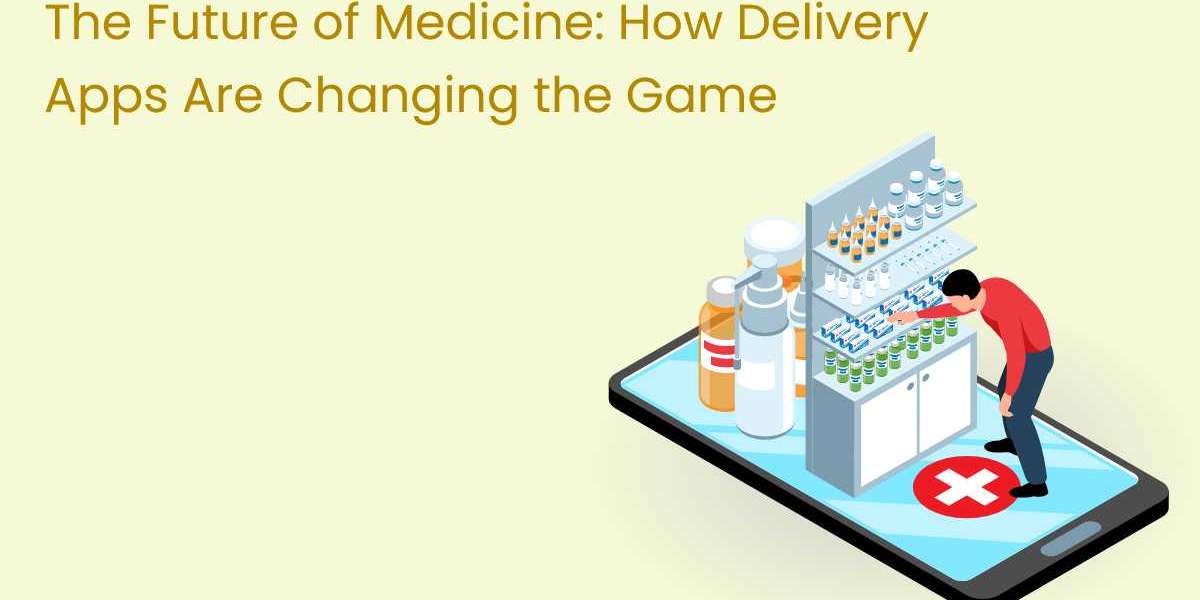In today's fast-paced world, the future of medicine is being shaped by groundbreaking technological advancements that are transforming the way healthcare services are accessed and delivered. At the forefront of this revolution are medicine delivery apps, which are leveraging the power of digital technology to provide convenient, accessible, and personalized solutions for individuals seeking to manage their health more effectively. From improving medication adherence to expanding access to healthcare services, these apps are changing the game and revolutionizing the future of medicine.
Expanding Access to Healthcare
One of the most significant impacts of medicine delivery app is their ability to expand access to healthcare services, particularly for underserved and marginalized populations. Traditionally, accessing prescription medications required a visit to a brick-and-mortar pharmacy, which could be challenging for individuals with limited mobility, transportation barriers, or residing in rural areas. Medicine delivery apps eliminate these barriers by providing a convenient and accessible platform for individuals to order medications from the comfort of their homes and have them delivered directly to their doorstep. This increased access to medications empowers individuals to take control of their health and well-being, regardless of their location or circumstances.
Enhancing Medication Adherence
Medication adherence, or the extent to which individuals take their medications as prescribed, is a critical factor in managing chronic conditions and preventing adverse health outcomes. Unfortunately, medication non-adherence remains a widespread issue, with various factors contributing to missed doses and treatment interruptions. Medicine delivery apps address this challenge by offering features such as medication reminders, automatic refills, and personalized medication management tools. These tools help individuals stay on track with their medication regimen, leading to improved adherence rates and better health outcomes.
Personalized Care and Support
Another key aspect of medicine delivery apps is their ability to provide personalized care and support to users, tailored to their individual needs and preferences. Many apps offer virtual consultation services with licensed healthcare providers, allowing users to receive medical advice, guidance, and prescriptions remotely. These virtual consultations can be particularly beneficial for individuals with chronic conditions or minor health concerns who may not require an in-person visit to a healthcare provider. Additionally, medicine delivery apps may offer educational resources, medication therapy management programs, and support groups to help users better understand their medications and health conditions, empowering them to make informed decisions about their healthcare.
Innovation in Healthcare Delivery
Medicine delivery apps are driving innovation in healthcare delivery by leveraging technology to streamline and optimize various aspects of the medication distribution process. From automated prescription processing and inventory management to real-time tracking and delivery logistics, these apps are revolutionizing the way medications are sourced, dispensed, and delivered to patients. By harnessing the power of data analytics, artificial intelligence, and machine learning, medicine delivery apps can identify trends, predict demand, and personalize recommendations, improving efficiency, reducing costs, and enhancing the overall user experience.
Collaboration and Integration
Looking ahead, the future of medicine delivery apps lies in collaboration and integration with other healthcare stakeholders, including pharmacies, healthcare providers, insurers, and regulatory agencies. By forging partnerships and integrating with existing healthcare infrastructure, medicine delivery apps can extend their reach, improve interoperability, and ensure compliance with regulatory standards. Collaborative efforts may include initiatives such as electronic prescribing, medication synchronization programs, and telehealth services, providing a seamless and integrated healthcare experience for users.
Conclusion
In conclusion, medicine delivery apps are at the forefront of transforming the future of medicine, offering innovative solutions to address the evolving needs and preferences of consumers. By expanding access to healthcare, enhancing medication adherence, providing personalized care and support, driving innovation in healthcare delivery, and fostering collaboration and integration within the healthcare ecosystem, these apps are changing the game and shaping the future of healthcare delivery. As technology continues to advance and consumer expectations evolve, medicine delivery apps will play an increasingly vital role in driving positive change and improving health outcomes for individuals worldwide.




